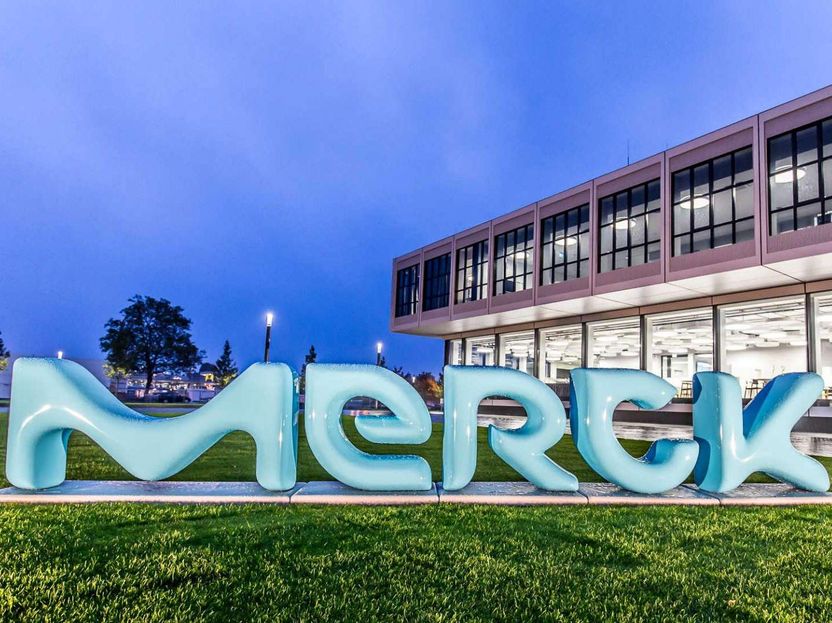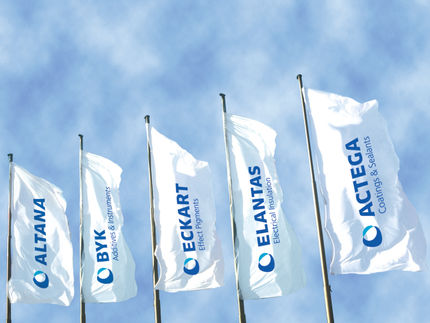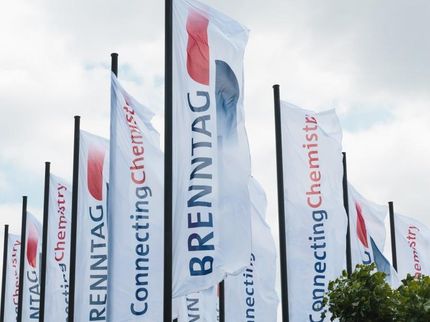Fiscal 2021: Merck Delivers Record Growth and Higher Profitability
Greater investments in high-growth businesses
Advertisement
Merck delivered record growth in fiscal 2021. In the course of the year, the company had already raised its business forecast three times. Group net sales increased by 12.3% to € 19.7 billion compared with the previous year. All three business sectors, first and foremost Life Science, contributed to this sales growth. Main drivers were the company’s Big 3 businesses – the Process Solutions business of Life Science, new Healthcare products and the Semiconductor Solutions business of Electronics. EBITDA pre of Merck advanced by 17.3% to € 6.1 billion, outpacing sales growth; the EBITDA pre margin of the Group rose by 1.3 percentage points to 31.0%. Earnings per share pre, which is a determinant of the Merck dividend, increased by 30.1% to € 8.72 in 2021. In line with the company’s dividend policy, the Executive Board and the Supervisory Board will propose to the Annual General Meeting on April 22, 2022, a dividend of € 1.85 per share, an increase of € 0.45 over the previous year. “2021 was a year of record growth and margin expansion. Our customer-centric teams have delivered outstanding results,” said Belén Garijo, Chair of the Executive Board and CEO of Merck.

Merck KGaA
“Despite a difficult environment, we have stayed a reliable partner for patients, scientists and our customers – and were hence able to achieve a record result. In 2021, we delivered growth in all business sectors and regions. Our Big 3 performed especially well. In parallel, we’ve successfully executed our strategic agenda, in particular by enhancing our position as a preferred supplier and solutions provider for traditional and novel modalities within Life Science,” Garijo emphasized.
Merck is significantly increasing investments in growth
At its Capital Markets Day last September, Merck announced its updated, medium-term growth plans. Accordingly, by 2025, around 80% of the planned sales growth is to come from the Big 3 businesses. From April 1, 2022, the Big 3 will comprise the Process Solutions business, which has been refocused as part of a reorganization of Life Science, and the newly established Life Science Services business. Together, these two units represent one of the Big 3 businesses. In addition, there are new products from Healthcare and the Semiconductor Solutions business of Electronics. To achieve its growth targets, the company plans to increase its total investments between 2021 and 2025 significantly compared with the period from 2016 to 2020.
With the acquisition of Exelead, a biopharmaceutical contract development and manufacturing organization (CDMO), Merck has further boosted its position in the CDMO market. The company also acquired Chord Therapeutics, a biotech company specializing in rare inflammatory disorders of the nervous system. In addition, Merck announced plans to invest significantly more than € 3 billion in innovations and capacities in its Electronics business sector by the end of 2025. Moreover, the company took further steps in the implementation of its sustainability strategy in 2021. Among other things, the Annual General Meeting in April 2021 approved the implementation of Merck's sustainability goals as an element of the compensation system for members of the Executive Board.
“Our focus is and remains our medium-term goal: around € 25 billion in Group sales by 2025. We will work tirelessly to accelerate Merck’s efficient growth by consistently and purposefully allocating our capital in future-oriented areas,” said Belén Garijo.
Net income increases to € 3.1 billion
In fiscal 2021, Group net sales rose organically by 13.8% amid negative foreign exchange effects of -1.4%. EBITDA pre grew organically by 18.1% in 2021. It should be noted here that the year-earlier figure included income from the reversal of a litigation provision amounting to € 365 million. Excluding this one-time effect in 2020, EBITDA pre rose organically by 27.0%. Foreign exchange movements and portfolio effects of -0.6% and -0.1% respectively had only an insignificant impact on the development of EBITDA pre. Earnings per share pre came in at € 8.72, representing an increase of 30.1% over the previous year. In 2021, the operating result EBIT soared by 40.0% to € 4.2 billion; Group net income climbed 53.7% to € 3.1 billion. Operating cash flow amounted to € 4.6 billion in 2021, thus increasing by 32.7% over the previous year. Furthermore, Merck lowered its net financial debt by € 2.0 billion to € 8.8 billion.
Life Science remains the main growth engine in 2021
In 2021, Life Science generated organic sales growth of 21.3%. Including negative foreign exchange effects of -1.6%, sales rose by a total of 19.6% to € 9.0 billion. In 2021, EBITDA pre of Life Science increased by 36.6% to € 3.3 billion. The EBITDA pre margin was 36.6%.
Key business developments in Life Science in fiscal 2021:
- The Process Solutions business, which markets products and services for drug manufacture, generated organic sales growth of 31.0%. This made it the fastest growing business within Life Science, fueled by strong demand in the core business as well as for products in connection with the pandemic relief effort.
- Research Solutions, which provides products and services to support life science research for pharmaceutical, biotechnological, and academic research laboratories, delivered organic sales growth of 15.1% in 2021. This was mainly driven by a recovery in the core business from pandemic-related effects.
- With its broad range of products for researchers as well as scientific and industrial laboratories, Applied Solutions generated organic growth of 8.8%.
Oncology and Fertility drive growth in Healthcare
In fiscal 2021, the Healthcare business sector generated an organic sales increase of 8.5%, driven mainly by the Oncology and Fertility franchises. By contrast, the impact of negative foreign exchange effects on sales was -1.4%. In addition, the sale of the allergy business Allergopharma in the first quarter of 2020 led to a portfolio effect of -0.3%. Overall, net sales of Healthcare rose by 6.8% to € 7.1 billion in fiscal 2021. EBITDA pre fell by -5.0% to € 2.2 billion; the EBITDA pre margin was 30.4%.
Key business developments in Healthcare in fiscal 2021:
- Sales in the Oncology franchise increased organically by 28.5%. Sales of the immuno-oncology medicine Bavencio more than doubled. This growth was mainly driven by the successive approvals since June 2020 as a first-line maintenance treatment for patients with locally advanced or metastatic urothelial carcinoma. The oncology drug Erbitux rebounded from the pandemic lows of 2020 and also benefited from high demand in China and Japan. Temporary contract manufacturing of cetuximab, the active ingredient of Erbitux, for Eli Lilly also positively impacted sales growth.
- Sales in the Neurology & Immunology franchise grew organically by 1.2%. Mavenclad, for the treatment of certain forms of multiple sclerosis (MS), generated organic sales growth of 32.6%. The growth was mainly attributable to the partial recovery of the segment for high-efficacy MS therapies, which was adversely affected by the pandemic in 2020. This contrasted with a year-on-year organic decline of -13.6% in sales of the MS drug Rebif, caused by the ongoing difficult competitive situation in the interferon market as well as competition from oral dosage forms and high-efficacy MS therapies.
- Sales in the Cardiovascular, Metabolism and Endocrinology franchise declined organically by -1.1%. A key reason for this was the volume-based procurement regulation, which was introduced in China in 2020 and affects the diabetes medicine Glucophage and the beta-blocker Concor.
- The Fertility franchise delivered very good organic sales growth of 25.6%. The sales increase was primarily due to Covid-19 rebound effects in North America and Asia-Pacific, as well as to the generally strong demand for Fertility products.
Electronics grows primarily due to the strength of Semiconductor Solutions
In 2021, net sales of Electronics rose organically by 7.7% amid a negative foreign exchange impact of -0.9%. Overall, sales by Electronics thus increased by 6.7% to € 3.6 billion. EBITDA pre amounted to € 1.1 billion, representing an increase of 10.2% over the previous year. The EBITDA pre margin was 31.3%.
Key business developments in Electronics in fiscal 2021:
- Net sales of Semiconductor Solutions grew organically by 15.0%, based on strong demand in the Semiconductor Materials and Delivery Systems & Services businesses and despite the challenges caused by global supply chain delays. Semiconductor Solutions accounted for 60% of the net sales by Electronics in 2021.
- Net sales of Display Solutions declined organically by -6.4%. The sales growth in OLED materials partly offset the continued competitive challenges in the Liquid Crystals business.
- Surface Solutions saw a 12.5% organic increase in net sales. The key driver of this growth was the continued rebound from the impacts of the Covid-19 crisis, which weighed heavily on business in 2020.
Strong organic growth of net sales and EBITDA pre expected
Merck expects strong organic growth of net sales in fiscal 2022, driven by all business sectors, particularly by Life Science. Foreign exchange effects are forecast to have a positive impact of 1% to 4%. For EBITDA pre in fiscal 2022, the company expects strong organic growth. Life Science is likely to be the key growth driver, yet Merck also expects positive contributions to the organic growth of EBITDA pre from Healthcare and Electronics. The forecast foreign exchange development is expected to have a positive effect of 2% to 5% on Group EBITDA pre; it is likely to be seen mainly in the Healthcare and Electronics business sectors.
The development of operating cash flow should largely mirror the forecasted strong operating performance, complemented by positive foreign exchange effects. Overall, Merck expects to see a strong increase in operating cash flow in fiscal 2022. In principle, however, the forecast for operating cash flow is subject to a higher fluctuation corridor than the forecast for net sales and EBITDA pre.

































































